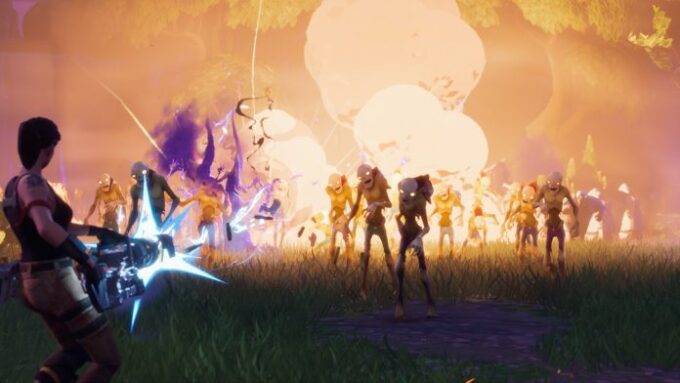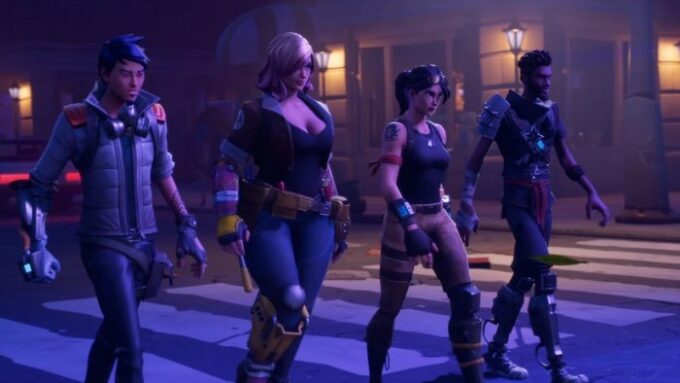With 98% of the world’s population having vanished and monsters suddenly popping up out of weird purple-hued energy storms, what’s a Hero to do? If you’re one of the 115+ Heroes in Fortnite, you build some sort of shelter, craft up a few guns and some ammo, then start wiping out enemy hordes – preferably in a group with three of your friends.
Fortnite is kind of hard to pin down, though Epic Games’ claim that it’s an “Action Building” game seems a decent start. Alone or in a team of up to four players, gamers will scour the procedurally generated map to gather resources by searching objects or breaking them down into their component parts, rescue survivors, and locate the objective.
Gathering resources makes the game feel a bit like Minecraft, and a whole lot like the recent plethora of survival games to hit the market. Smashing cars, trees, and rocks (among a slew of other objects) gamers gather up material to craft walls, floors, traps, and – most importantly – weapons. Schematics, used to craft new items, can be found in the environment or earned via quests, and can be leveled up using experience chips to produce more powerful weapons.
Fortnite features a massive roster of potential Heroes, though they’ll need to be unlocked via quests or earned from the Llama piñatas that stand in for loot boxes. Heroes come in one of four classes: Constructor, Ninja, Outlander, and Soldier, with each having a unique skill. Constructors build/demolish faster, for example, while Ninjas can double jump. Subclasses like Recon Scout (Ninja) or Warlord (Soldier) providing additional variety to the skills they’ll bring to the battlefield. Heroes can also be leveled up to provide higher stats and unlock new skills.
There are a variety of missions, but they tend to boil down to a few basic steps: explore the map to gather resources, scout out the location, and find survivors, then spend a few minutes to fortify the mission zone, and finally start the waves of enemies you’ll need to mow down in order to succeed. Do well enough and you’ll earn high level loot chests after the smoke clears, providing a satisfying end to missions and keeping you hooked for ‘just one more’ until it’s the early hours of the morning.
Fortnite feels a little easy to start, especially when playing with a group, but it doesn’t take long before you leave the starter zone behind and hit some real opposition. By the time you hit the third zone it’s time to have a solid plan in place before summoning the Husk invasion, including fortifications that have had some thought lent to their construction. Sniper towers are a bonus if the team has a couple people with steady hands, but you’ll have to adapt to the weapons people want to play with. After all, if you get a legendary shotgun it’d be a shame not to use it…
Though it’s been released as an Early Access title, leading up to the game’s full release as a free-to-play title next year, Fortnite feels remarkably polished with only a few instances of lag to detract from the action thus far. The game is undeniably more fun when playing with friends, as the solo experience can start to get repetitive – at least through the initial zone, which is more or less the training and tutorial area, albeit one with hours of content to churn through. The game looks great already, with a simplistic style to it that evokes Plants vs Zombies, and the performance has been solid outside of a few spots of lag. The third-person shooting mechanics are flawless, with my only wish being for a grenade toss indicator of some kind.


